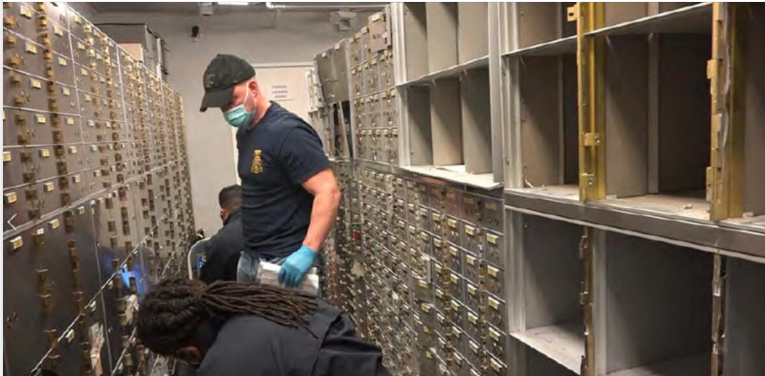In a landmark ruling, the FBI’s seizure of contents from hundreds of safe deposit boxes during a 2021 raid on a Beverly Hills business, suspected of laundering money, was deemed a violation of constitutional rights by a federal appeals court. This decision marks a significant turning point in the case, highlighting the tension between law enforcement practices and individual constitutional protections.
Upholding Fourth Amendment Rights
The U.S. 9th Circuit Court of Appeals’ decision on January 23rd came as a stark rebuke to the FBI’s actions, emphasizing the importance of adhering to the Fourth Amendment’s safeguards against unreasonable searches and seizures. The court found that the bureau overstepped its bounds by opening and cataloging the contents of 1,400 safe deposit boxes without obtaining individual criminal warrants for each box holder. This ruling reversed a 2022 lower court decision that had previously sided with the FBI, bringing relief to the many individuals who felt wronged by the government’s actions.

Rob Frommer, a senior attorney with the Institute for Justice who represented several plaintiffs in the case, hailed the ruling as a “resounding victory” for his clients and the hundreds of people affected by the FBI’s raid. The appeals court’s directive for federal officials to destroy any inventory records related to the box holders not charged with a crime underscores the court’s commitment to protecting individual rights and privacy.
The Raid and Its Aftermath
The March 2021 raid on U.S. Private Vaults resulted in the seizure of approximately $86 million in cash, alongside valuable items such as jewelry, gold bars and coins, and other precious materials. This aggressive move by the FBI sparked controversy and legal challenges, especially as the bureau commenced administrative forfeiture proceedings against an unspecified number of the boxes shortly after the raid. Civil asset forfeiture, a practice that allows the government to seize assets linked to criminal activity even if the owner is not charged with a crime, came under intense scrutiny in the wake of the raid.
The case against U.S. Private Vaults, which eventually pleaded guilty to conspiracy to launder drug money, served as the backdrop for the FBI’s actions. However, the government’s argument that its warrant authorized the seizure and inventory of the deposit boxes’ contents was ultimately rejected by the appeals court. This decision raises critical questions about the balance between law enforcement objectives and the constitutional rights of individuals, particularly in cases where the lines between criminal involvement and innocent ownership are blurred.
Implications for Civil Liberties and Law Enforcement Practices
The appeals court ruling has significant implications for both civil liberties and law enforcement practices moving forward. It serves as a reminder of the judiciary’s role in checking governmental power and ensuring that individual rights are not trampled in the pursuit of justice. The case also highlights the controversial nature of civil asset forfeiture and its potential for abuse, prompting calls for reform and stricter oversight of this practice.
As the FBI and other law enforcement agencies reflect on this ruling, there may be a need for policy revisions to ensure that future investigations and raids do not infringe upon constitutional rights. The case underscores the necessity for law enforcement to navigate the delicate balance between effectively combating crime and upholding the legal protections afforded to all citizens under the Constitution.
Read More:
- Why the weather is hampering recovery efforts of car that drove off Virginia Beach pier
- Florida therapist charged with murder after body found in trunk
In conclusion, the 9th Circuit Court of Appeals’ decision in this case marks a pivotal moment in the ongoing dialogue about privacy, property rights, and the scope of governmental authority in criminal investigations. It reaffirms the fundamental principle that even in the pursuit of criminal justice, the constitutional rights of individuals must be preserved and protected.

